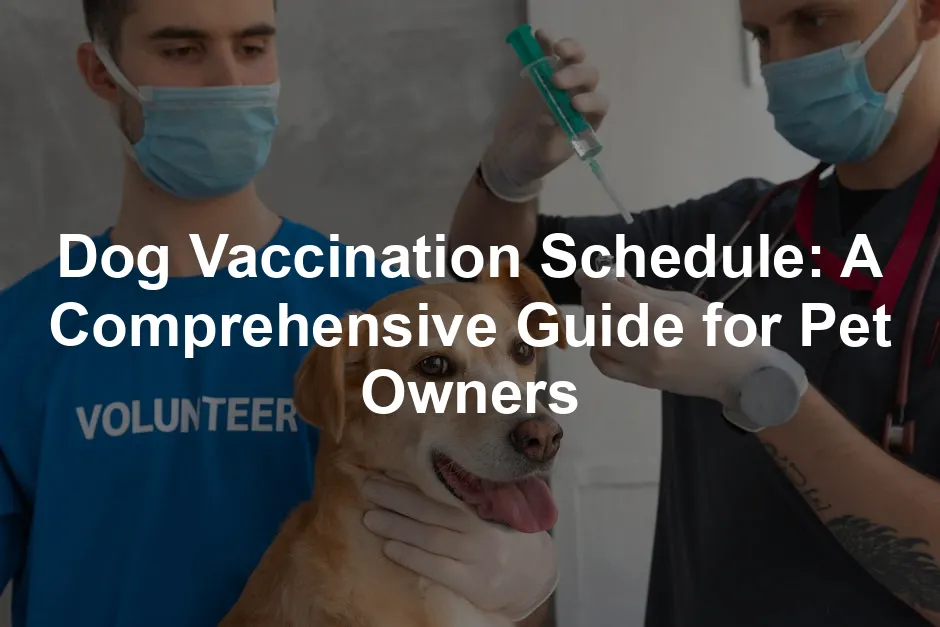Introduction
Vaccination schedules are vital for your dog’s health. They protect against serious diseases that can harm your furry friend. Regular vaccinations help build immunity and prevent outbreaks in canine communities. Always consult your veterinarian for a personalized vaccination plan tailored to your dog’s needs.And speaking of being prepared, have you considered keeping a Dog Vaccination Record Book? It’s like a diary for your dog’s health, ensuring you never forget those crucial vaccine dates. Plus, it adds a touch of organization to your pet-parenting game!
Summary and Overview
Vaccinations serve an essential purpose: protecting dogs from infectious diseases. Core vaccines are crucial for all dogs, while non-core vaccines depend on lifestyle and risk factors. Not vaccinating your dog can lead to severe health consequences, including outbreaks of preventable diseases. This guide will cover vaccination schedules for puppies and adult dogs, ensuring your pet stays safe and healthy.While we’re at it, have you thought about your dog’s first aid needs? A Dog First Aid Kit can be a lifesaver in emergencies. It’s like having a mini vet in your backpack, ready to tackle any unexpected scrapes or bumps your pooch might encounter during your adventures!
Importance of Dog Vaccinations
Vaccinations are crucial for maintaining your dog’s health. They not only protect individual dogs but also help safeguard public health. Vaccines reduce the prevalence of infectious diseases, which can spread easily among unvaccinated populations. For example, parvovirus and distemper can be deadly but are preventable through vaccination. Some common misconceptions exist about vaccines being harmful; however, evidence shows they are safe and effective. Protecting your dog through vaccinations is a responsible choice that contributes to overall canine health.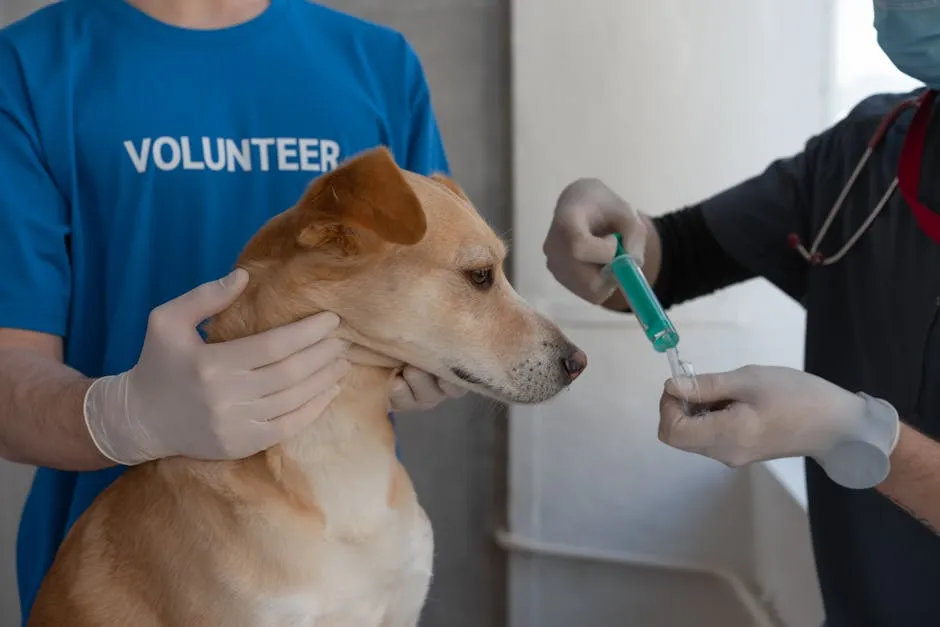
Understanding the importance of vaccinations can help you manage your dog’s health effectively. dog health issues
To take your dog’s health to the next level, consider getting a Pet Health Insurance Guide Book. It’s a smart way to navigate the world of pet insurance, helping you find the best coverage for your furry friend. Because let’s face it, vet bills can get outrageous, and you want to be prepared!
Types of Vaccines
Core Vaccines
Core vaccines are essential for all dogs. They protect against severe, widespread diseases. The key core vaccines include:- Rabies: A fatal virus that affects the nervous system.
- Distemper: A viral infection causing severe respiratory and neurological issues.
- Parvovirus: A highly contagious virus leading to gastrointestinal distress.
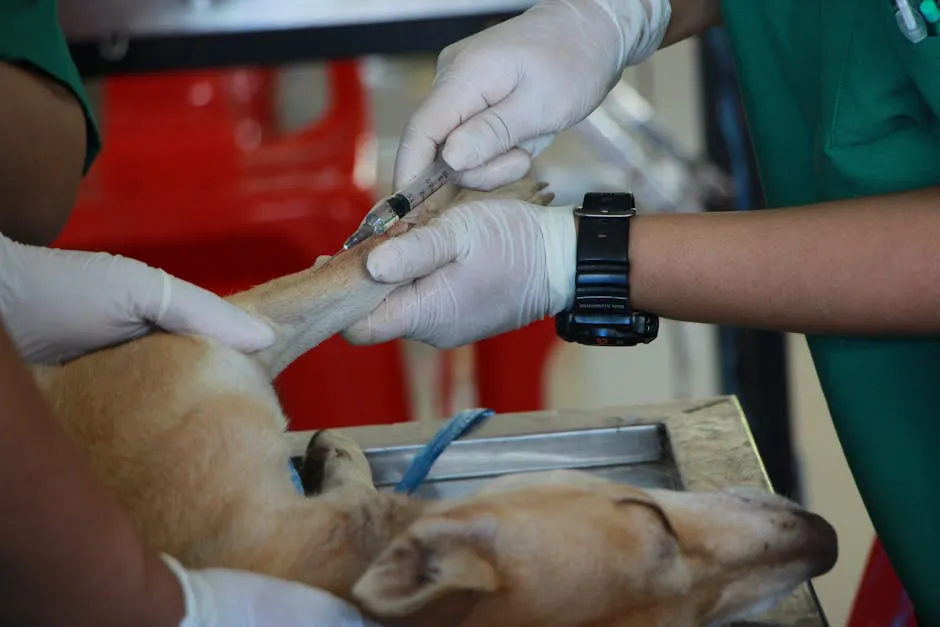
Non-Core Vaccines
Non-core vaccines are given based on specific risk factors. These vaccines may be recommended depending on your dog’s lifestyle and environment. Examples of non-core vaccines include:- Bordetella: Protects against kennel cough, essential for dogs in close quarters.
- Lyme Disease: Recommended for dogs exposed to ticks in endemic areas.
Also, if you’re looking to enhance your dog’s training experience, consider a Dog Training Collar. It’s a game-changer for obedience training, helping you communicate better with your dog while avoiding any embarrassing moments at the dog park!
Puppy Vaccination Schedule
Puppies require a series of vaccinations to build immunity against serious diseases. Here’s a typical vaccination schedule from 6 to 16 weeks:| Age | Core Vaccines | Non-Core Vaccines |
|---|---|---|
| 6-8 Weeks | Distemper, Parvovirus | Bordetella (optional) |
| 10-12 Weeks | DHPP (Distemper, Hepatitis) | Leptospirosis, Lyme (optional) |
| 14-16 Weeks | Final DHPP, Rabies | Leptospirosis, Canine Influenza |

And don’t forget about keeping your puppy entertained with a Interactive Dog Puzzle Toy. It’s perfect for keeping their minds sharp while you’re busy with vaccination paperwork!
Adult Dog Vaccination Schedule
Adult dogs have specific vaccination needs. Typically, they require core vaccines, which include rabies and DHPP (Distemper, Hepatitis, Parvovirus, Parainfluenza). These vaccinations help protect against severe diseases that can be fatal. Boosters are essential for maintaining immunity. Most core vaccines need to be administered every three years after the initial puppy vaccinations. However, some vaccines, like leptospirosis and Bordetella, require annual boosters. Your dog’s lifestyle can impact their vaccination schedule. For example, dogs that frequently visit dog parks or boarding facilities may need additional non-core vaccines. These vaccines can protect against kennel cough and Lyme disease, which are more prevalent in certain environments. On average, adult dogs receive about six to eight vaccinations throughout their lives. This number can vary based on health, age, and lifestyle factors. Regular consultations with your veterinarian will help tailor the vaccination plan for your dog’s specific needs.
While we’re at it, consider a Dog Leash with Reflective Stitching. It ensures that both you and your dog remain visible during those late-night walks, making safety a top priority!
Diseases Prevented by Vaccines
Vaccines play a crucial role in preventing serious diseases in dogs. Key illnesses preventable by vaccination include rabies, parvovirus, distemper, and leptospirosis. Rabies is a fatal viral disease that can also affect humans. Symptoms include aggression, paralysis, and difficulty swallowing. Parvovirus causes severe gastrointestinal issues, often leading to dehydration and death if untreated. Distemper is another viral illness with symptoms like fever, coughing, and seizures. It can lead to neurological problems and is often fatal. Leptospirosis, a bacterial disease, can result in severe kidney or liver failure. Vaccines work by stimulating the immune system to recognize and fight these pathogens. They prepare your dog’s body to respond effectively, reducing the risk of outbreaks. In unvaccinated populations, outbreaks can occur, leading to severe health crises.
Consultation with Your Veterinarian
Your veterinarian plays a vital role in your dog’s vaccination schedule. They can recommend the right vaccines based on your dog’s age, health, and lifestyle. Each dog is unique, so having a tailored schedule is essential. It’s crucial to share your dog’s daily activities and environment with your vet. For instance, if your dog frequently interacts with other dogs or spends time outdoors, they may need specific non-core vaccines. This information helps the vet make informed recommendations. To prepare for your vaccination consultation, consider these tips:- Gather Information: Bring any relevant medical records and vaccination history.
- List Concerns: Write down any questions or concerns about vaccines.
- Discuss Lifestyle: Be ready to discuss your dog’s lifestyle and routines.
- Plan Ahead: Schedule check-ups in advance to keep vaccinations on track.
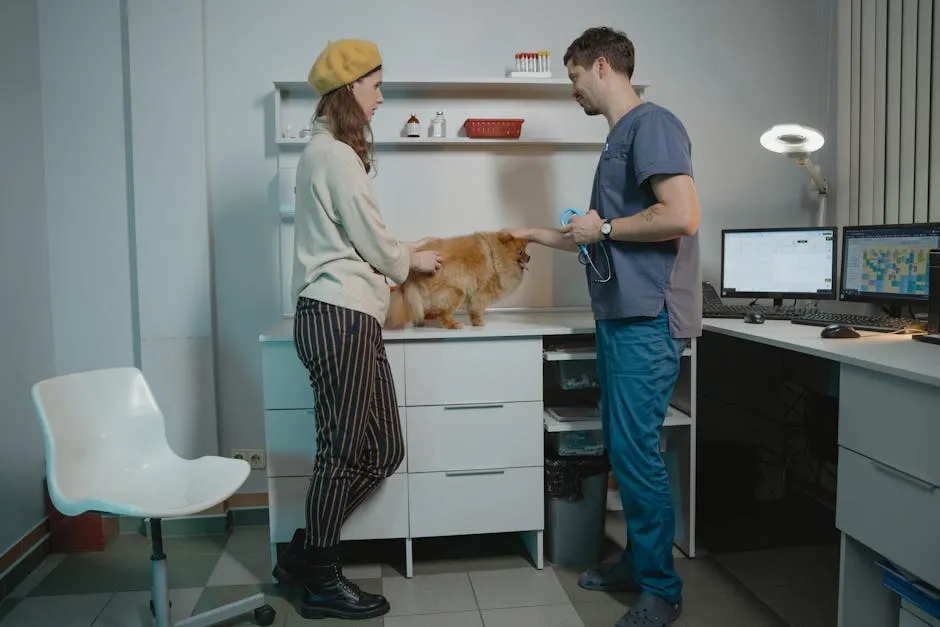
And while you’re at it, consider investing in a Dog Crate for Travel. It makes trips to the vet or family gatherings much easier, keeping your furry friend safe and secure during the ride!
Cost of Vaccinations
Understanding the costs of dog vaccinations is essential for responsible pet ownership. Typically, core vaccines can range from $15 to $100 per shot, depending on several factors. For example, the rabies vaccine usually costs between $15 and $20. The DHPP vaccine, which protects against several diseases, can cost around $25. Several factors influence these prices:- Location: Veterinary costs vary by region. Urban areas may have higher prices than rural ones.
- Type of Vaccine: Core vaccines generally cost less than non-core vaccines. Non-core vaccines, like Lyme disease or canine influenza, may be more expensive.
- Veterinary Practice: Different clinics have varying pricing structures.

And speaking of keeping your pup happy, have you tried a Dog Treats for Training? They work wonders for motivation and can turn even the most stubborn pup into a star student!
Adverse Reactions and Safety
Vaccinations, while beneficial, can cause some side effects. Common reactions include mild soreness at the injection site, slight fever, or reduced energy. These symptoms usually resolve within a day or two. Monitoring your dog after vaccinations is crucial. Watch for any unusual behavior or persistent symptoms. If your dog seems lethargic or has a prolonged fever, consult your veterinarian. Contact your vet immediately if your dog shows severe symptoms. These may include swelling, difficulty breathing, or vomiting. Quick action can help ensure your dog receives the necessary care.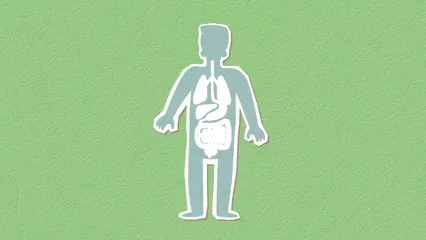
Conclusion
Keeping your dog’s vaccination schedule up-to-date is essential. It protects them from serious diseases and contributes to the health of the broader canine community. Always consult with your veterinarian for personalized advice tailored to your dog’s needs. They can help create a vaccination plan based on your dog’s lifestyle and health status. Regular health check-ups are also vital. They ensure your dog remains healthy and can help identify any potential issues early. Responsible pet ownership means staying proactive about your dog’s health.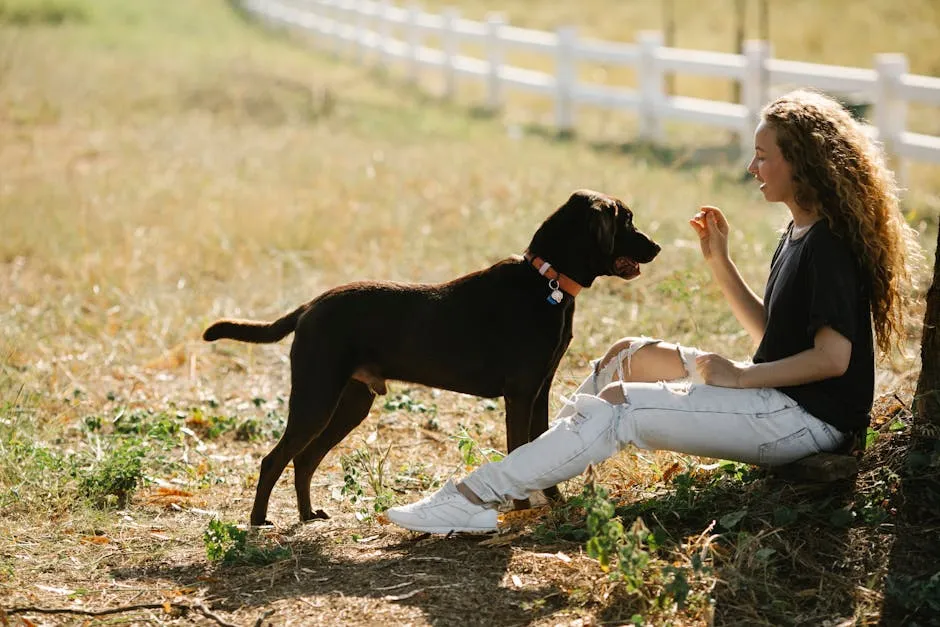
Speaking of being proactive, a Dog Grooming Kit is essential for keeping your pup looking sharp and healthy. Regular grooming not only keeps their coat shiny but also allows you to check for any skin issues!
What vaccinations does my puppy need?
Puppies need core vaccinations like Distemper, Hepatitis, and Parvovirus. Non-core vaccines may include Bordetella and Leptospirosis based on their environment.
How often should I vaccinate my adult dog?
Adult dog vaccination frequency varies. Typically, core vaccines are given every three years, while non-core vaccines may require annual boosters.
What are the risks of not vaccinating my dog?
Neglecting vaccinations can lead to severe diseases like Parvovirus and Distemper. Unvaccinated dogs are at higher risk of outbreaks.
Are dog vaccinations safe?
Yes, vaccines are safe. Monitoring your dog post-vaccination can help identify rare adverse reactions early.
Can I socialize my puppy before vaccinations are complete?
It’s best to wait until your puppy completes their vaccination series. This ensures they are protected from infectious diseases.
What should I do if my dog has a reaction to a vaccine?
If your dog shows severe symptoms like swelling or difficulty breathing, contact your veterinarian immediately for guidance.
How can I find low-cost vaccination options for my dog?
Check local animal shelters or community clinics for low-cost vaccination events. Many organizations offer affordable services to keep pets healthy.
Please let us know what you think about our content by leaving a comment down below!
Thank you for reading till here 🙂
All images from Pexels

